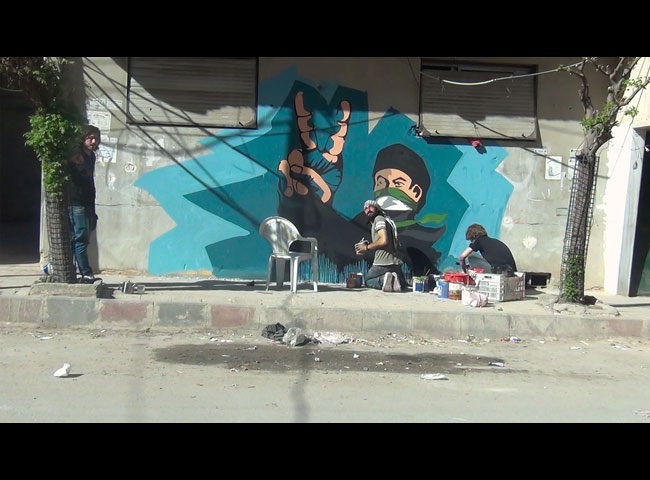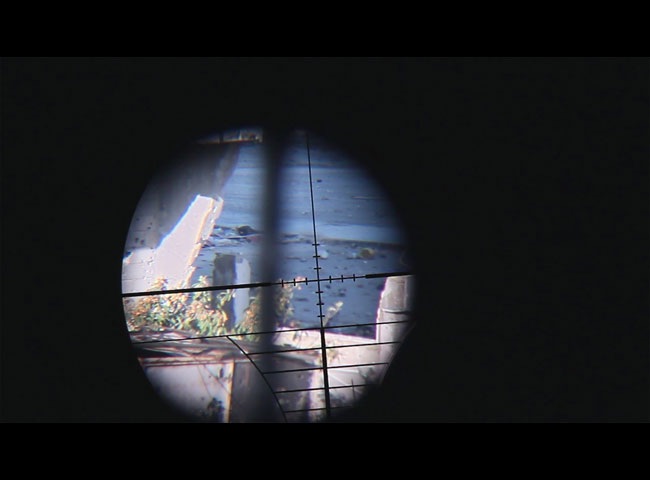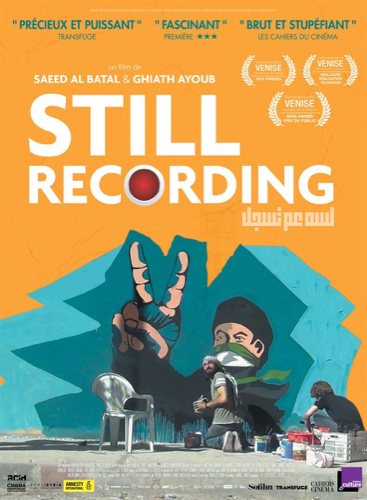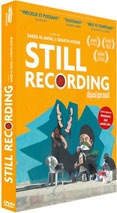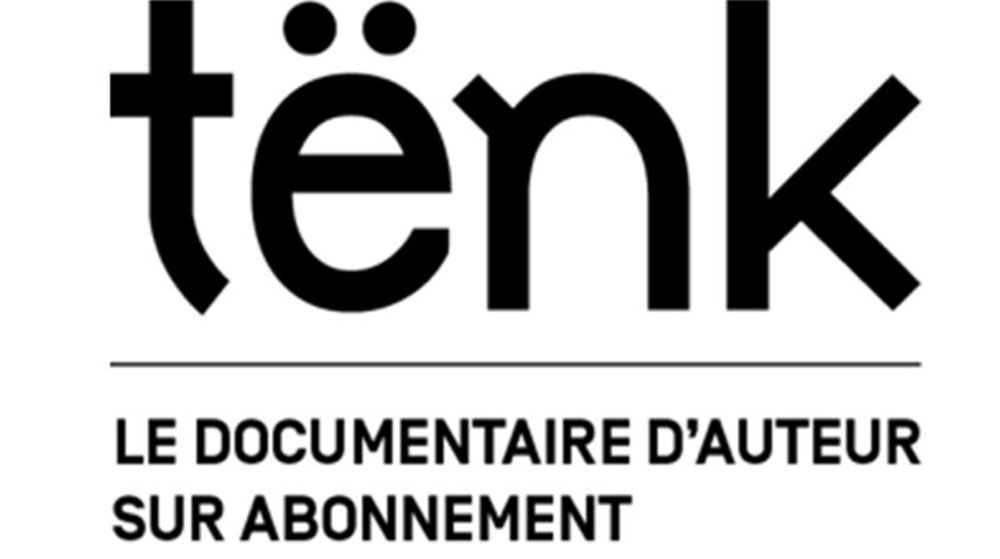Lissa ammetsajjel
-
Réalisé par Saeed Al Batal, Ghiath Ayoub • Écrit par Saeed Al Batal, Ghiath Ayoub
-
Liban, France, Syrie, Allemagne • 2018 • 128 minutes • Couleur
- Réalisation :
Saeed Al Batal, Ghiath Ayoub - Écriture :
Saeed Al Batal, Ghiath Ayoub - Image :
Saeed Al Batal, Milad Amin, Raafat Bayram, Ghiath Bayram, Abdel Rahman Najjar, Ghiath Ayoub, Tim Siofi - Son :
Tim Siofi - Montage :
Qutaiba Barhamji, Raya Yamashi - Mixage :
Pierre Armand - Étalonnage :
Shirine Sinno - Montage son :
Pierre Armand, Nans Mengeard - Sound design :
Pierre Armand
- Production (personne) :
Mohammad Ali Atassi, Jean-Laurent Csinidis, Meike Martens - Production (structure) :
Bidayyat for Audiovisual Arts - Coproduction :
Rousl Group, Films de Force Majeure, Blinker Filmproduktion - Participation :
CNC, Institut français, World Cinema Fund, Doha Film Institute, Studio Lemon, L' Aide aux Cinémas du Monde, Cinéfeel Dotation, Federal Foreign Office, Goethe-Institut, German Cooperation, Deutsche Gesellschaft für Internationale Zusammenarbeit, Visions du Réel - Festival international du cinéma documentaire - Ayant droit :
Bidayyat for Audiovisual Arts
- N° ISAN :
ISAN 0000-0004-F6A8-0000-A-0000-0000-7
Résumé
En 2011, Saeed la vingtaine, étudiant ingénieur, quitte Damas pour Douma (Ghouta orientale) afin de participer à la révolution syrienne. Il sera rejoint plus tard par son ami Milad, peintre et sculpteur, alors étudiant aux beaux-arts de Damas. Dans Douma libérée par les rebelles, l’enthousiasme révolutionnaire gagne la jeunesse, puis c’est la guerre et le siège. Pendant plus de quatre ans, Saeed et Milad filment un quotidien rythmé par les bombardements, les enfants qui poussent dans les ruines qu’on graffe, les rires, un sniper qui pense à sa maman, la musique, la mort, la folie, la jeunesse, la débrouille, la vie. Radiographie d’un territoire insoumis, un regard d’une densité exceptionnelle sur la guerre dans un mouvement de cinéma et d’humanité saisissant.
Still Recording is a feature documentary that follows art students Saeed and Milad, who decide to leave Damascus and go to Douma, a suburb under rebel control. Over more than four years, the film depicts the two friends and their acquaintances as they go about their daily lives, capturing the transformation of the city of Douma and its people as they go through liberation, war, siege and hunger. More than 500 hours of footage was shot, and the men face grave questions about life and death, revolution and armed struggle, dreams and doubts, fear and love, and the use of art in a world facing destruction. Saeed and Milad try to launch a graffiti art project in Douma, but things in the besieged city take a turn for the worse after a chemical attack on eastern Gouta. After he loses one of his friends, Milad decides to revive the art project with the help of his friends by painting colourful graffiti on the grey, devastated walls of the city. Saeed and Milad finally get out of Douma and seek refuge in Beirut, where they face loss, exile and hope.
Mot(s)-clé(s) thématique(s)
À propos du film
Sélections et distinctions
- 2019 • Images en bibliothèques • Paris (France) • Film soutenu par la Commission nationale de sélection des médiathèques
- 2019 • Les Rencontres du film documentaire de Mellionnec • Mellionnec (France) • Sélection
- 2019 • DOC-Cévennes - Festival International du Documentaire en Cévennes • Lasalle (France) • Sélection
- 2019 • Settimana della Critica • Venise (Italie) • Prix du Public de la Settimana della Critica & Prix FIPRESCI & Prix de la meilleure réalisation technique & Edipo Re Award & Vivere da sportivo il fair-play al cinema Award
- 2019 • DocPoint - Helsinki Documentary Film Festival • Helsinki (Finlande) • Sélection
- 2019 • Cinéma du réel • Paris (France) • Sélection Front(s) populaire(s)
- 2019 • BAFICI - Buenos Aires Festival International du Cinéma Indépendant • Buenos Aires (Argentine) • Sélection
- 2018 • FICValdivia - Festival Internacional de Cine de Valdivia • Valdivia (Chili) • Meilleur Film
- 2018 • Ji.hlava International Documentary Film Festival • Jihlava (République tchèque) • Mention spéciale
